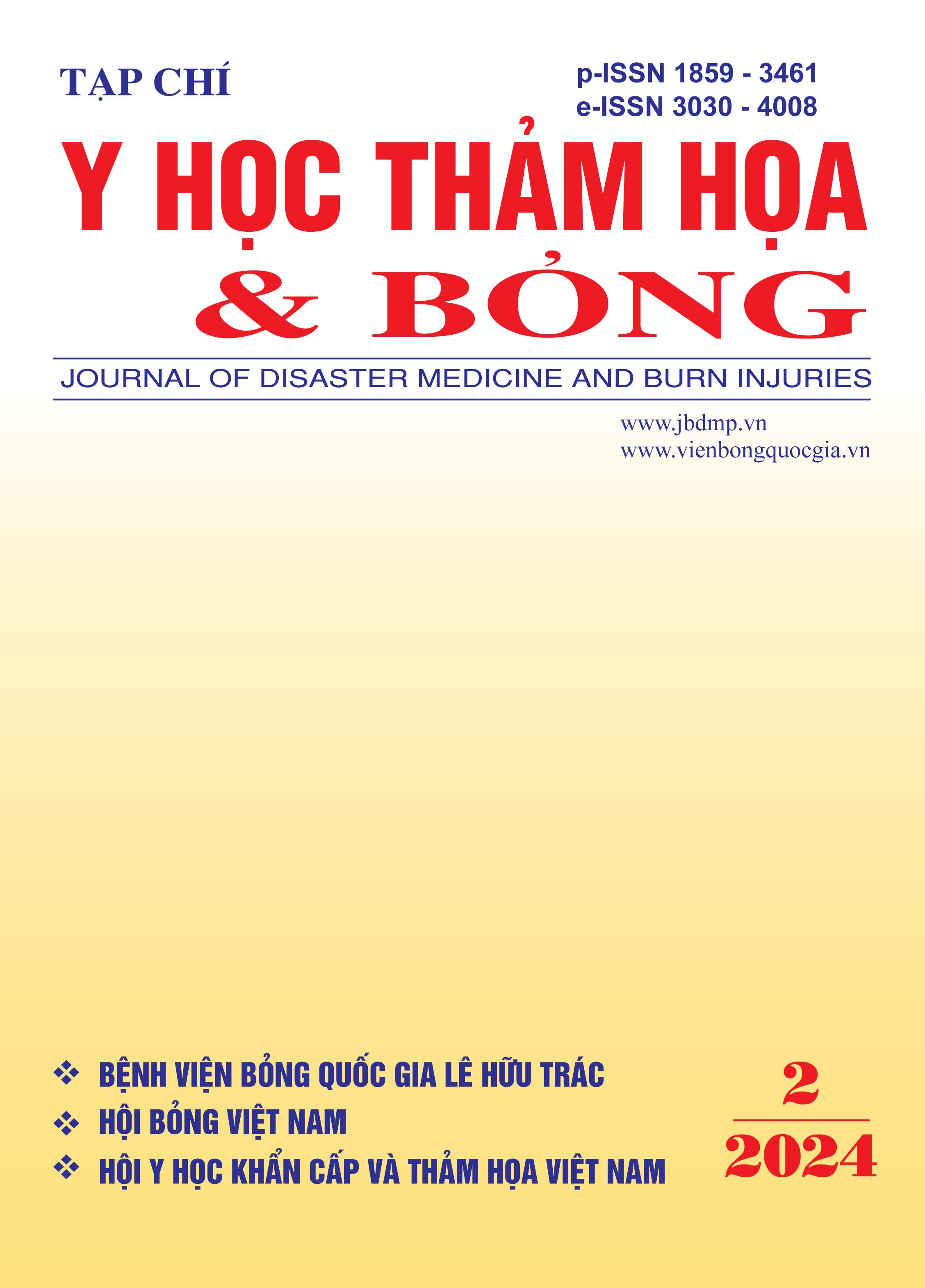Báo cáo một trường hợp u tế bào hạt type người lớn ở buồng trứng
Nội dung chính của bài viết
Tóm tắt
Báo cáo một trường hợp u tế bào hạt type người lớn ở buồng trứng được chẩn đoán, điều trị tại bệnh viện và tìm hiểu đặc điểm lâm sàng, cận lâm sàng, phương pháp điều trị, các yếu tố tiên lượng.
Trường hợp lâm sàng: Bệnh nhân nữ 60 tuổi, được chẩn đoán u tế bào hạt người lớn ở buồng trứng trái giai đoạn sớm, được điều trị phẫu thuật cắt toàn bộ tử cung, hai phần phụ. Bệnh nhân không điều trị bổ trợ. Sau mổ 2 năm, không ghi nhận tái phát hay di căn xa.
Kết luận: U tế bào hạt type người lớn ở buồng trứng cần chẩn đoán và điều trị sớm, phẫu thuật triệt căn là phương pháp hiệu quả. Bệnh có tiên lượng tốt, tuỳ giai đoạn bệnh mà quyết định phương pháp điều trị bổ trợ và cần theo dõi sau mổ lâu hơn các bệnh lý ung thư khác.
Chi tiết bài viết
Từ khóa
U buồng trứng, u tế bào hạt, u tế bào hạt người lớn
Tài liệu tham khảo
2. Homesley HD, Bundy BN, Hurteau JA, Roth LM. Bleomycin, etoposide, and cisplatin combination therapy of ovarian granulosa cell tumors and other stromal malignancies: A Gynecologic Oncology Group study. Gynecol Oncol. 1999; 72:131-7. [PubMed] [Google Scholar]
3. Young RH, Dickersin GR, Scully RE. Juvenile granulosa cell tumor of the ovary. A clinicopathological analysis of 125 cases. Am J Surg Pathol. 1984;8:575-96. [PubMed] [Google Scholar]
4. Kanthan R, Senger JL, Kanthan S. The multifaceted granulosa cell tumours-myths and realities: A review. ISRN Obstet Gynecol 2012. 2012 878635. [PMC free article] [PubMed] [Google Scholar]
5. Uygun K, Aydiner A, Saip P, Kocak Z, Basaran M, Dincer M, et al. Clinical parameters and treatment results in recurrent granulosa cell tumor of the ovary. Gynecol Oncol. 2003; 88:400-3. [PubMed] [Google Scholar]
6. Ayhan A, Salman MC, Velipasaoglu M, Sakinci M, Yuce K. Prognostic factors in adult granulose cell tumors of the ovary: A retrospective analysis of 80 cases. J Gynecol Oncol. 2009;20:158-63. [PMC free article] [PubMed] [Google Scholar]
7. King LA, Okagaki T, Gallup DG, Twiggs LB, Messing MJ, Carson LF. Mitotic count, nuclear atypia, and immunohistochemical determination of Ki-67, c-myc, p21- ras, c-erbB2, and p53 expression in granulosa cell tumors of the ovary: mitotic count and Ki-67 are indicators of poor prognosis. Gynecol Oncol. 1996; 61:227-32. [PubMed] [Google Scholar]
8. Mangili G, Ottolina J, Gadducci A, Giorda G, Breda E, Savarese A, et al. Long-term follow-up is crucial after treatment for granulosa cell tumours of the ovary. Br J Cancer. 2013;109:29-
9. Al-Badawi IA, Brasher PM, Ghatage P, Nation JG, Schepansky A, Stuart GC. Postoperative chemotherapy in advanced ovarian granulosa cell tumors. Int J Gynecol Cancer. 2002;12:119-23. [PubMed] [Google Scholar]
10. Sehouli J, Drescher FS, Mustea A, Elling D, Friedmann W, Kühn W, et al. Granulosa cell tumor of the ovary: 10 years follow-up data of 65 patients. Anticancer Res. 2004; 24:1223-9. [PubMed] [Google Scholar]


